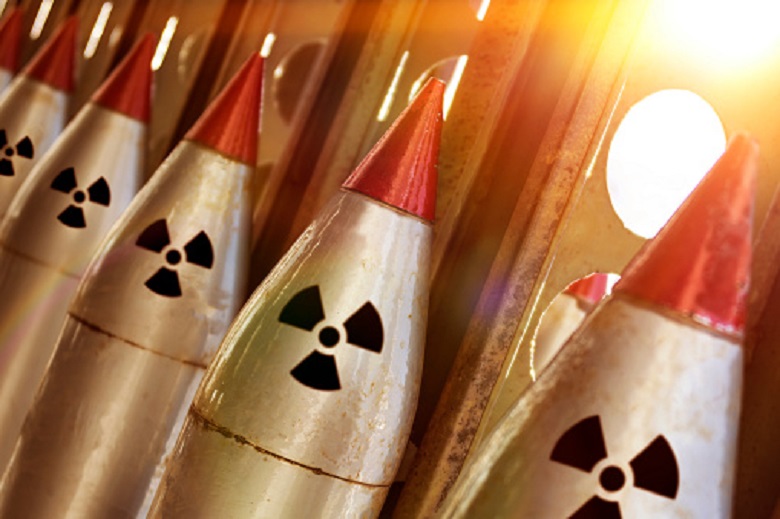Citing the “challenge” posed by China, the United States confirmed its determination to defend Japan using a wide range of means, including nuclear, according to a joint statement by the heads of state of Japan and the United States.
“We are committed to working together to meet China’s challenges,” Joe Biden said at a press conference following his negotiations with Japanese Prime Minister Yoshihide Suga.
Their joint declaration, adopted at the end of the meeting, details the American-Japanese alliance and the issue of common security, including the use of nuclear weapons.
Defend using all abilities
“The United States has reaffirmed its unwavering support for the defense of Japan under the Treaty on Mutual Security and Cooperation between the United States and Japan, using its full range of means, including nuclear,” said the Minister in a statement.
Joe Biden and Yoshihide Suga have also spoken out in favor of peace and stability in the Taiwan Strait. “We stress the importance of peace and stability in the Taiwan Strait and encourage a peaceful resolution of the issues (concerning this place).”
The Japanese agency Kyodo said that this is the first mention of Taiwan in a joint statement by the leaders of the two countries in 52 years. The last dates back to negotiations between Japanese Prime Minister Eisaku Sato and Richard Nixon in 1969.
Xinjiang and the Chinese seas
The two countries have expressed serious concern about the human rights situation in Hong Kong and the Xinjiang Uyghur Autonomous Region.
The two sides, reaffirming that Article V of the Treaty on Mutual Cooperation and Security applies to the Senkaku Islands disputed by China, reject any attempt to change the region.
“We oppose any unilateral attempt to change the status quo in the East China Sea. We reiterated our objections to China’s illegal maritime claims and activities in the South China Sea and reaffirmed our strong shared interest in a free and open South China Sea governed by international law, in which freedom of navigation and overflight is a guarantee, in accordance with the United Nations Convention on the Law of the Sea,” the document states.
The two countries also reaffirmed their commitment to the complete denuclearization of North Korea, urging it to respect its commitments under the UN Security Council resolutions.
Beijing opposes joint statement
China was quick to react with a statement from its embassy in Washington, posting “resolute opposition”.
The positions of Japan and the United States “go well beyond the framework of normal bilateral relations” and threaten the interests of third parties as well as peace and stability in the Asia-Pacific zone, the statement read.
“It could not be more ironic that such an attempt to stir up division in Asia-Pacific and to build small blocs directed against third countries is presented as ‘freedom and openness,” he stressed, the embassy in reference to the American desire to build a “free and open Indo-Pacific region”.
